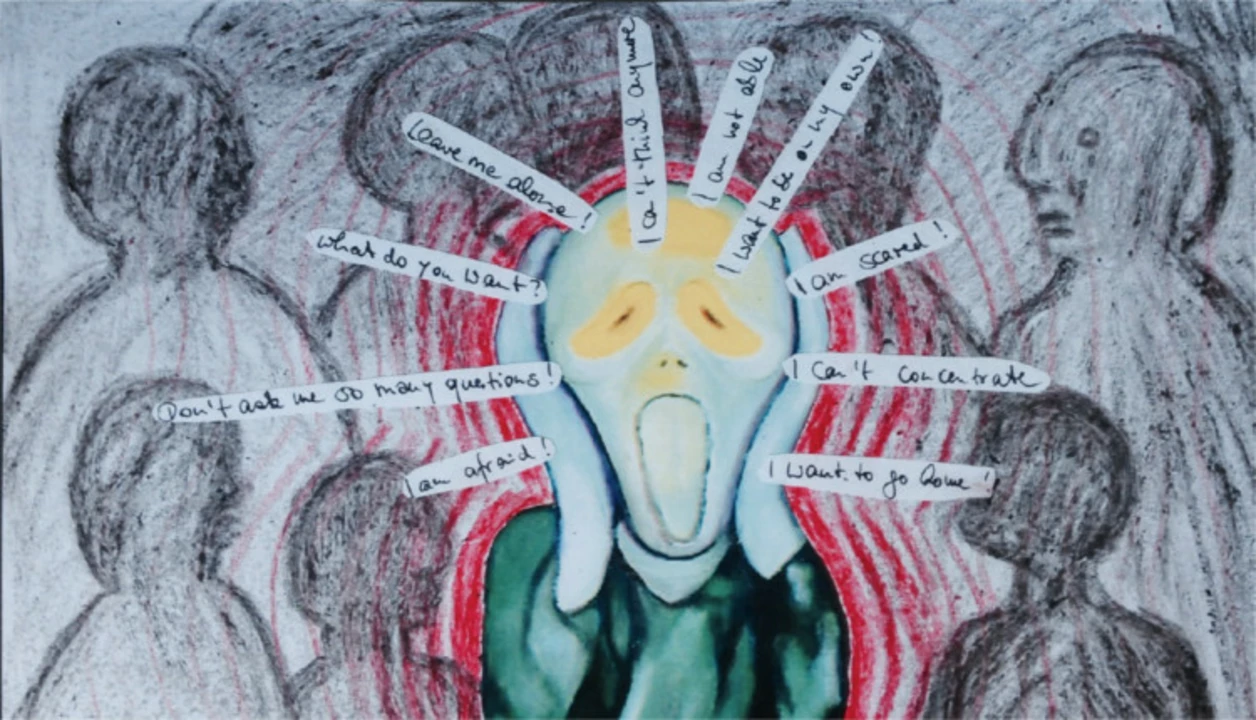Anxiety: Practical Help, Meds, and Safety
Anxiety can feel overwhelming, but small, specific steps often help more than general advice. First, notice what your anxiety feels like in your body and what triggers it. Labeling sensations—tight chest, racing thoughts, muscle tension—helps you pick a focused strategy.
If anxiety spikes, try a 4-4-4 breathing pattern: breathe in for four, hold four, out for four. Grounding techniques work too — name five things you see, four you can touch, three you hear.
Medications can be a big help, but they vary. SSRIs like Lexapro are common first choices; expect 4–8 weeks to feel the full effect. If a medicine affects your weight, simple exercise tweaks — HIIT or steady-state — can help manage changes. Benzodiazepines like Ativan work fast for panic but need careful dosing if you have heart issues.
Therapy is often the most reliable long-term fix. Cognitive behavioral therapy (CBT) teaches skills to change thoughts and behaviors that feed anxiety. Combine therapy with small daily habits: 7–8 hours sleep, cut caffeine after noon, and aim for 20 minutes of movement.
If you have suicidal thoughts, self-harm urges, or can’t stop shaking, seek help now. Panic attacks are scary but not dangerous; if they’re frequent, talk to your doctor about treatment adjustments.
Buying meds online can save money, but only from verified pharmacies that require a prescription. Check for a real address, pharmacist contact, and clear refund policies; avoid sites that ship without a prescription.
Try this short plan: notice triggers, practice breathing for one week, start regular walks, and ask your doctor about CBT or meds. Use our anxiety tag to read specific posts on Ativan dosing, Lexapro weight tips, and safe online pharmacies. Small consistent steps add up — pick one change this week and track how you feel.
Medications and safety tips
Talk openly with your prescriber about side effects you worry about, like sleep changes, digestive upset, or weight shifts. If you have heart disease or arrhythmia, mention it before starting drugs like benzodiazepines so dosing can be adjusted. Longer term options include SSRIs, SNRIs, and psychotherapy; short course benzodiazepines may help only for acute flare ups. Therapies like exposure work well for panic and social anxiety, while CBT skills help with daily worry patterns. You can use apps for guided breathing, sleep help, or tracking mood, but don’t rely on them instead of professional care when symptoms are severe. For quick relief try a short walk, a cold splash of water on the face, or a five minute breathing cycle.
Daily tools to reduce anxiety
Set a small sleep and exercise goal each week and cut evening screens. Try simple exposures to feared situations for ten minutes a day rather than avoiding them. Keep a one line diary of what helped each day. If meds are right for you, combine them with therapy. When in doubt, call your GP or a local mental health line for immediate advice. Come back to this tag to find practical articles and medication safety notes.

